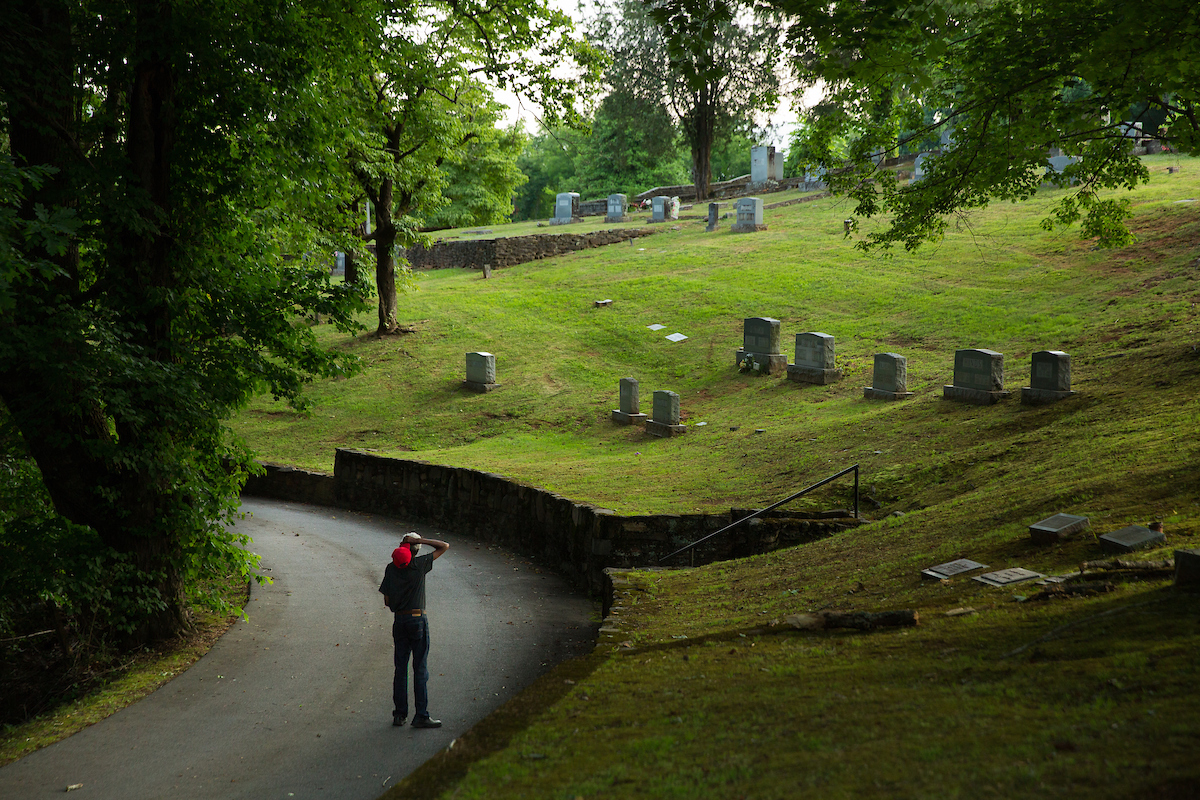Photographer Chris Aluka Berry Documents Untold Stories Of Affrilachian People, Culture

William “Tank” Coward, 77, walks by Keener Cemetery in Sylva, North Carolina. Fifty years ago, there was a thriving African American community surrounding the cemetery. Now, Coward is the last African American to live in the area.
When you hear the term “Appalachia,” people of color are not normally in the images that come to mind.
“Affrilachia” refers to people of African American heritage who are native to or live in the Appalachians.
Chris Aluka Berry is a photographer who has documented the life of Affrilachian people, mostly in the Southern part of the Appalachian Mountains. He shares their stories in an effort to bring awareness to their culture and dignity.
His works are on view now on the Atlanta BeltLine’s Westside Trail through June as part of the Georgia FENCE project.
Aluka Berry grew up in a biracial family in South Carolina. He has been documenting the Affrilachians over the last four years — whether at funerals, celebrations, churches or at their homes.
“Not only is the Affrilachian culture something that a lot of people don’t know about, but, unfortunately, it is a culture that is fading away,” said Aluka Berry.
Younger generations are leaving the rural areas to pursue better opportunities in the city.
“The people that do stay are really connecting to the land,” he said. “There are stories of Black communities that were completely self-sufficient. Stories of African Americans owning entire mountainsides. Folks being so successful that they were hiring white folks to do their laundry, rather than vice versa. It’s really a part of American history that I think a lot of people would really love to learn about.”
After he photographs the people, he often makes small prints to give to the families and individuals he takes pictures of. His photographs have even been used in some of the obituaries and pamphlets of those who have passed away.
Aluka Berry feels that race relationships in the Appalachian Mountains are different from more urban areas.
“I have seen beautiful relationships between white folks and Black folks in the mountains. I almost feel like race relations are better in the mountains than they are here in Atlanta sometimes,” said Aluka Berry.
He continued, “You have to lean on your neighbor. People have learned how to coexist in the mountains for so long because the mountains are so isolated. The folks I have found up there identify with being Appalachian as much as they do with being African American.”








